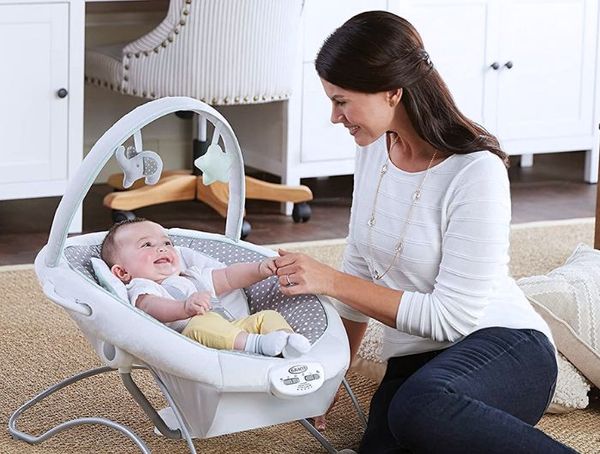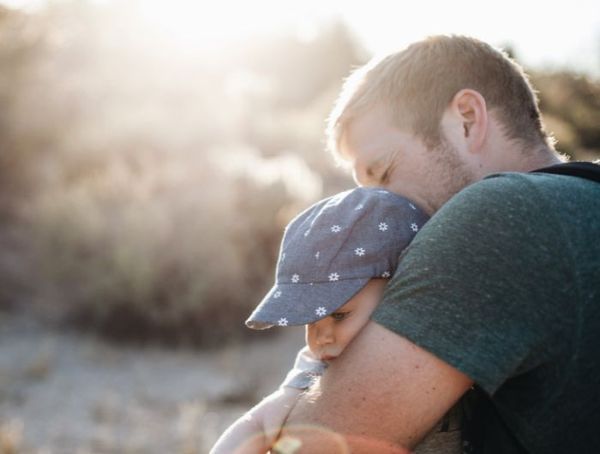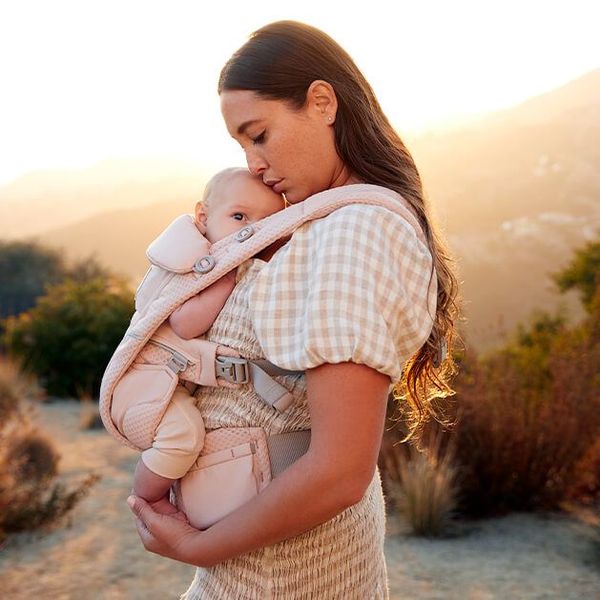A baby carrier is one of the best items of baby gear you can purchase. It allows you to keep your baby safe while you go about your day. They can also help you bond with your baby, soothe them when they are fussy, and promote their physical and mental development. In this blog post, we will share some tips and factors to consider when choosing a baby carrier.
Types of Baby Carriers
There are four main types of baby carriers: wraps, slings, soft-structured carriers (SSCs), and meh dais. Each one has its own pros and cons, depending on your preferences, budget, and lifestyle.
Wraps
are long pieces of fabric that you wrap around your body and tie in different ways to create a pouch for your baby. They are very versatile and can be used from the newborn to toddler stage. They also offer a lot of support and comfort for both you and your baby. However, they can also be tricky to learn how to use, especially if you are alone or in a hurry. They can also be hot and bulky in warm weather.
Wrap baby carriers are made from stretchy or woven fabric that you can wrap around your body, securing your baby safely in place. Wrap baby carriers offer a snug, secure hold for newborns, and are perfect for carrying your baby close to your chest. They are also great for a hip carry, once your baby grows a bit older and can hold their head up.
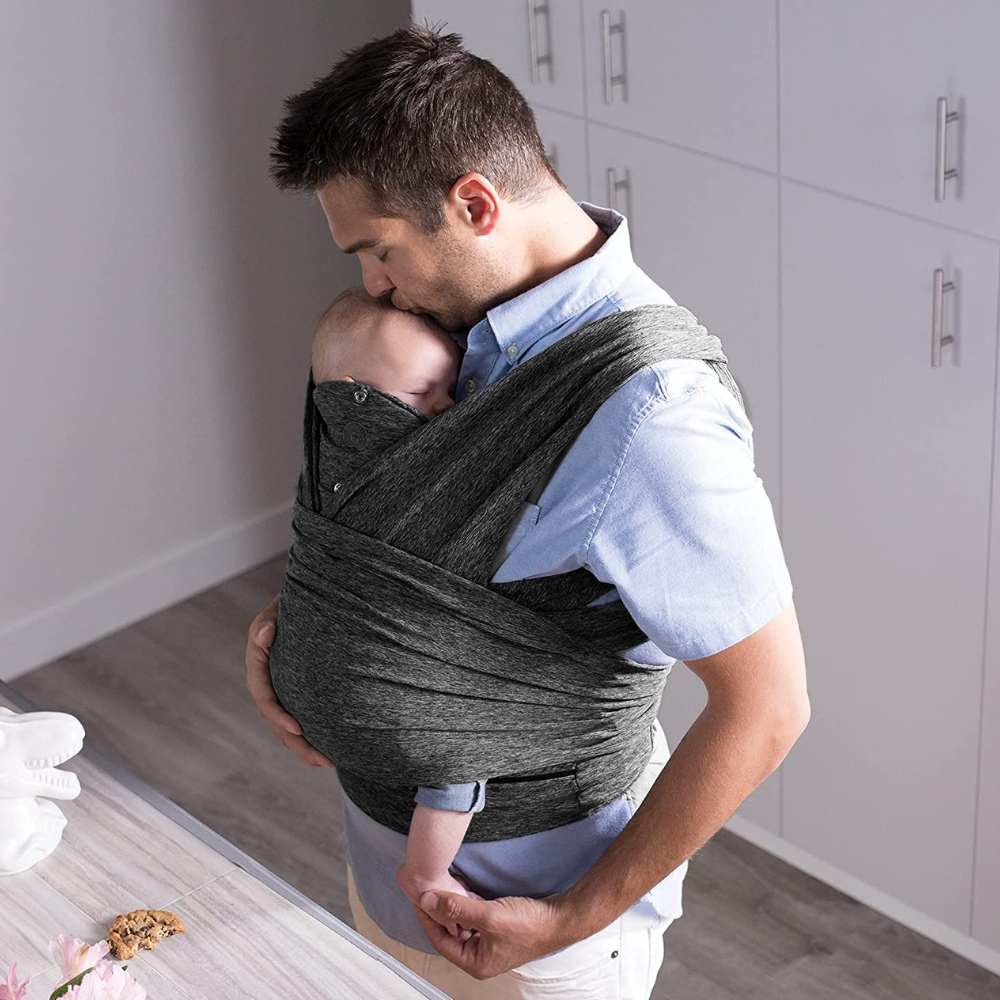
Slings
are similar to wraps, but they have a ring or a buckle that allows you to adjust the length and tightness of the fabric. They are easy to put on and take off, and they are great for breastfeeding on the go. They are also suitable for newborns and toddlers. However, they can also put more strain on your shoulder and back, since they distribute the weight unevenly. They can also be unsafe if not used correctly, as they can cause suffocation or hip dysplasia in babies.
Take a look at our comparison of wraps, slings and structured carriers.
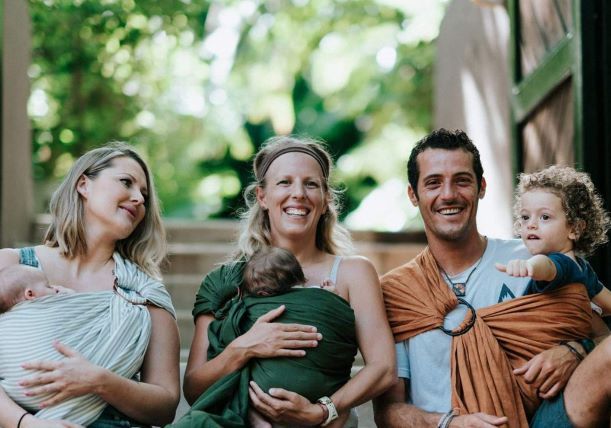
Soft-structured carriers
are carriers that have padded straps and buckles that attach to a fabric panel that holds your baby. They are very convenient and easy to use, and they offer good support for both you and your baby. They can also be adjusted to fit different body types and sizes. However, they can also be expensive, bulky, and hard to clean. They can also be less cozy and snug than wraps or slings.
The soft structured carrier is a popular option for many parents as they offer excellent support and stability for your baby. Soft structured carriers are designed to distribute your baby's weight evenly across your back and hips, reducing the burden on your muscles and joints. They also offer multiple carry positions, so you can carry your baby safely in various ways.
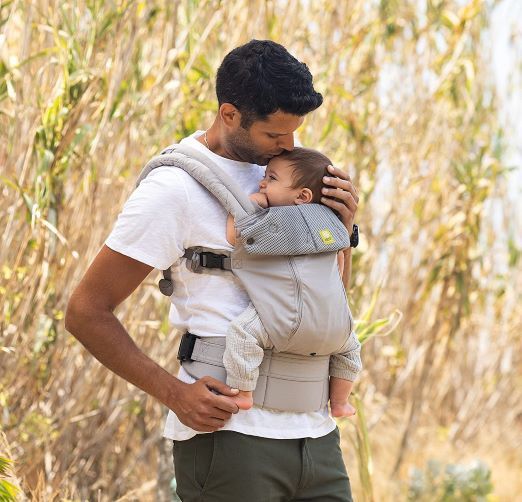
Meh-Dais
are carriers that have a fabric panel with straps that tie around your waist and shoulders. They are similar to SSCs, but they offer more flexibility and customization in how you wear them. They can also be used from the newborn to toddler stage. However, they can also be hard to find in stores or online, and they can be less secure than SSCs.
Factors To Consider When Choosing A Baby Carrier
When choosing a baby carrier, there are several factors that you should consider:
When it comes to baby carriers, safety is of utmost importance. Any baby carrier you choose should be able to support your baby's weight safely without compromising their comfort. Make sure the carrier you choose can support both you and your baby's weight comfortably. It is also essential to make sure that your baby's face is visible and that they are not buried deep into the carrier.
Age and weight considerations are also important when selecting a baby carrier. Some carriers are more suitable for certain stages of development than others. For example, newborns need more head and neck support than older babies, so you might want to choose a carrier that offers that. You should also check the weight limit and size range of the carrier before buying it.
Check the weight limit recommended by the manufacturer, and make sure you buy a carrier that supports your baby's weight. Some carriers are designed to support newborns, while others are better suited for older babies. Moreover, you want a carrier that supports your baby's legs, which will prevent them from dangling uncomfortably.
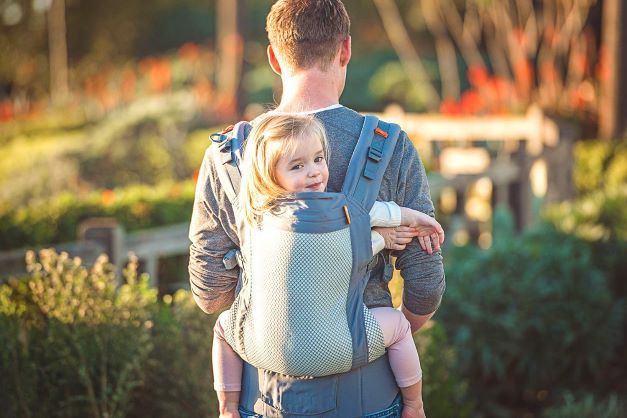
Your comfort and convenience: You want a carrier that is comfortable for both you and your baby, as well as easy to use and adjust. Look for a carrier that has padded shoulder straps and a wide waistband to help distribute the weight more evenly. This will help prevent back pain and other discomforts that may occur as you carry your baby around.
Wide shoulder bands, lumbar support and breathable fabric are also important features. You should also try on the carrier before buying it, or look for reviews from other parents who have used it.
Your budget: Baby carriers can range from $20 to $200 or more, depending on the type, brand, quality, and features. You should decide how much you are willing to spend on a carrier and look for options that fit your budget. You can also look for second-hand or discounted carriers online or in local groups.
Your lifestyle: You want a carrier that matches your lifestyle and needs. For example, if you travel a lot or live in a hot climate, you might want a carrier that is lightweight and compact. If you have multiple children or plan to share the carrier with someone else, you might want a carrier that is adjustable and versatile.
Learn more about the benefits of babywearing for dads like valuable bonding time.
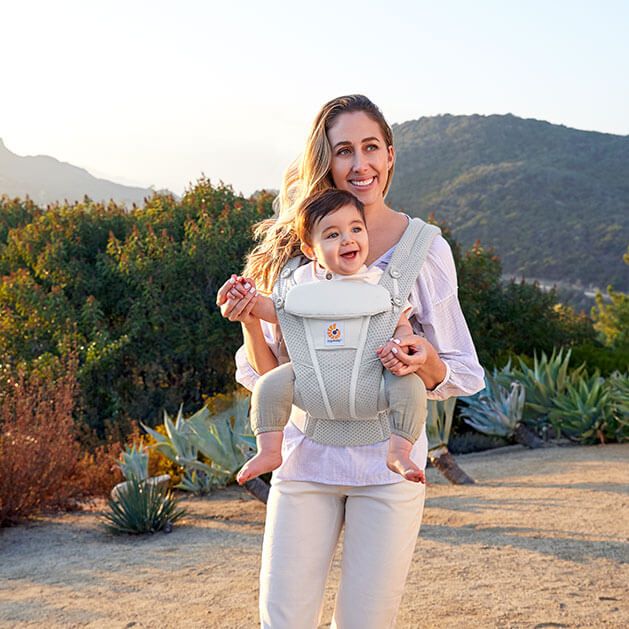
Nursing In A Baby Carrier
If you are thinking about nursing in a baby carrier, there are some factors to consider.
Make sure the carrier is comfortable for both you and your baby. Look for adjustable straps and good support for your baby’s head and neck.
Think about how easy it will be to nurse. Some carriers have special features that make breastfeeding easier. Look for easy-to-use buckles or snaps that let you adjust the carrier quickly.
Consider privacy. If you want to nurse discreetly, look for a carrier with a built-in cover or one that can be used with a nursing cover.
Finally, don’t forget about the weather. If you’ll be nursing outside, make sure the carrier is made from breathable materials that will keep you and your baby cool in hot weather.
With these factors in mind, you’ll find the perfect carrier for you and your little one.
Conclusion
Choosing a baby carrier involves considering the safety and comfort of your baby, the type of carrier that suits your needs, the age and weight of your baby, and the support for your baby's legs.
Thank you for reading Mother Bear Reviews, your favorite parenting blog!






